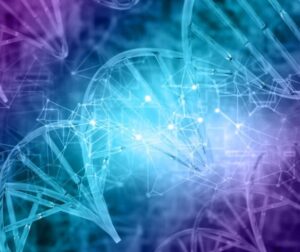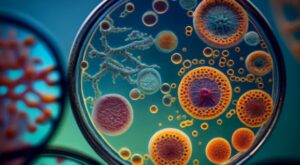BIOLOGY
Biology explores the intricate mechanisms of life, focusing on organisms’ structure, function, and evolution. This scientific field covers diverse topics and from cellular processes to ecosystems. Researchers study genetics, ecology, and microbiology to understand living organisms better. Advances in biology drive innovations in medicine and environmental science. Understanding biology helps us address health challenges and ecological issues. For example, genetic research leads to new treatments for diseases, while ecological studies promote conservation efforts. So students interested in biology often pursue careers in research and healthcare, or environmental management. This discipline connects various scientific areas and providing a comprehensive view of life. So with ongoing research, biology continually uncovers new insights into how organisms interact with their environment. Because Embracing biology’s complexities helps us appreciate the intricate web of life on Earth.
Understanding Biology: (From Fundamentals to Specializations)
Biology, the study of life and living organisms, encompasses a vast range of topics that span various disciplines and levels of complexity. To fully grasp the scope of this field, it is essential to explore foundational concepts, delve into specialized areas, and appreciate the intricate processes that sustain life. This article will offer a comprehensive overview of biology, focusing on key concepts such as translation biology, ATP biology, and marine biology, while also addressing the broader question: “What is biology?”
 What is Biology?
What is Biology?
At its core, biology is the scientific study of life. This field examines the structure, function, growth, evolution, distribution, and taxonomy of living organisms. Biologists seek to understand how organisms interact with their environment and with each other. The study of biology is organized into various branches, including molecular biology, genetics, ecology, and more.
Biology is a multidisciplinary field that integrates concepts from chemistry, physics, and environmental science. The goal of biology is not only to understand how life functions but also to apply this knowledge in practical ways, such as in medicine, agriculture, and conservation.
 Translation Biology: (The Mechanism of Protein Synthesis)
Translation Biology: (The Mechanism of Protein Synthesis)
One of the fundamental processes in biology is the translation of genetic information into functional proteins. Translation biology focuses on this process and where the genetic code contained in DNA is converted into proteins because which are essential for virtually all cellular functions.
During translation and messenger RNA (mRNA) serves as a template for synthesizing proteins. The mRNA sequence is read by ribosomes because it facilitate the assembly of amino acids into a polypeptide chain. Transfer RNA (tRNA) molecules bring amino acids to the ribosome and matching their anticodons with the codons on the mRNA. This process ensures that proteins are synthesized accurately and efficiently.
Understanding translation biology is crucial for mastering biology because it highlights the intricate mechanisms by which genetic information is utilized. Disruptions in this process can lead to various genetic disorders and diseases and underscoring the importance of studying this aspect of biology.
ATP Biology: (The Energy Currency of Cells)
A fundamental concept in biology is the role of ATP (adenosine triphosphate) as the energy currency of the cell. ATP biology examines how cells generate and use ATP to power various biological processes. ATP is essential for functions such as muscle contraction and active transport across cell membranes, and biosynthesis of macromolecules.
The process of ATP production occurs primarily through cellular respiration, which includes glycolysis, the citric acid cycle, and oxidative phosphorylation. During cellular respiration, glucose and other substrates are broken down, and the energy released is used to synthesize ATP. This ATP is then used by the cell to perform work, such as synthesizing proteins, replicating DNA, and facilitating cellular movement.
So mastering ATP biology is fundamental to understanding how cells function and how energy is managed within an organism. Without ATP, cellular processes would cease and leading to a breakdown in overall biological functions.
 Marine Biology: (Exploring Life in the Oceans)
Marine Biology: (Exploring Life in the Oceans)
Marine biology is a specialized branch of biology that focuses on organisms living in marine environments and from the smallest plankton to the largest whales. This field encompasses the study of ocean ecosystems, marine species, and the interactions between these organisms and their environments.
Marine biology is crucial for understanding biodiversity and ecological dynamics in the world’s oceans. Marine biologists investigate various aspects of marine life, including physiology, behavior, and the impact of human activities on marine ecosystems. Topics of interest include coral reef ecosystems, marine pollution, and the effects of climate change on oceanic life.
Studying marine biology not only contributes to our understanding of ocean ecosystems but also has practical implications for conservation efforts and sustainable management of marine resources. Given that oceans cover more than 70% of the Earth’s surface and marine biology plays a vital role in addressing global environmental challenges.
Mastering Biology:
Mastering biology requires a deep understanding of complex systems and processes. Students should focus on cellular functions and genetics. Consistent study habits improve comprehension and retention. So practical labs enhance theoretical knowledge through hands-on experience. Utilizing textbooks and online resources can solidify learning. Regular review sessions help reinforce concepts and address uncertainties. Engaging with study groups fosters collaborative learning and diverse perspectives. But Applying critical thinking to biological problems develops problem-solving skills. So staying updated with recent scientific research broadens understanding. Time management and organization contribute to effective learning. Mastery of biology builds a strong foundation for advanced studies and careers. Emphasizing both theoretical and practical aspects ensures comprehensive mastery of the subject.Mastering biology involves integrating knowledge from various subfields and understanding how they interconnect. So this comprehensive approach allows for a deeper appreciation of life processes. And the ability to apply biological principles to solve complex problems.

1 thought on “BIology”